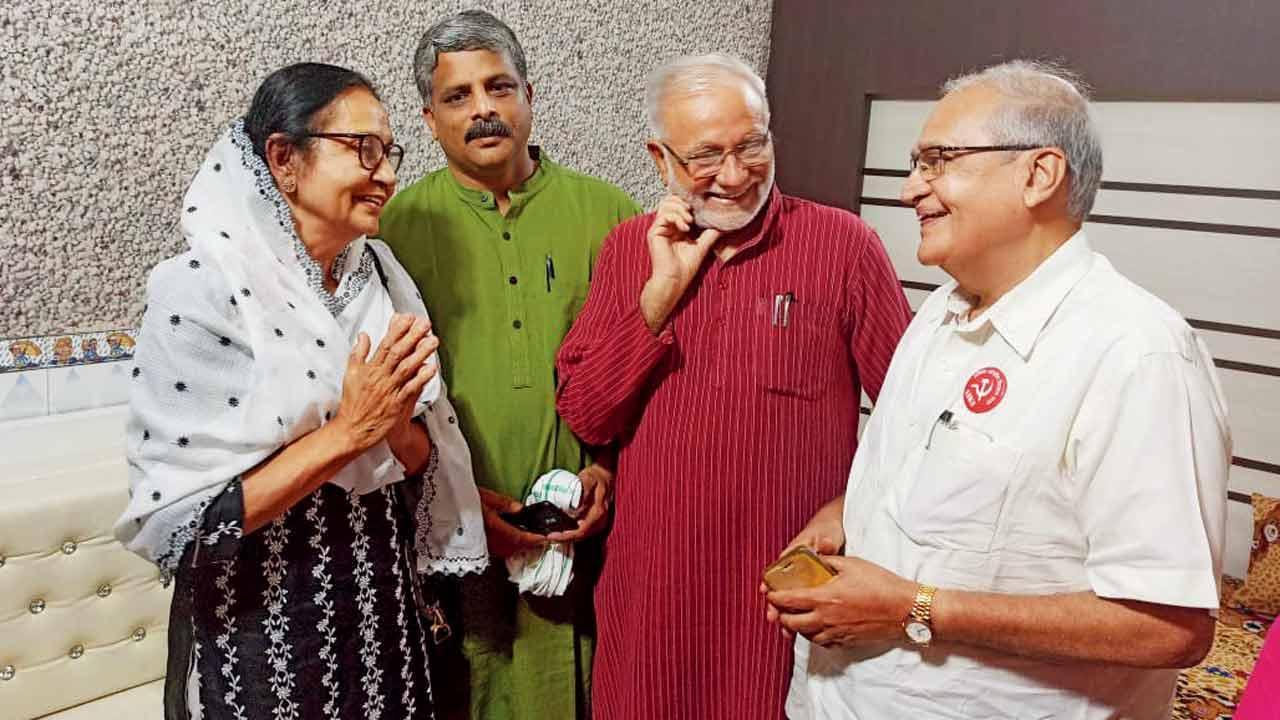Home / Mumbai / Mumbai News / Article /
Bhagat Singh’s niece: Never take violent path, but fight for your rights
Updated On: 23 March, 2021 08:06 AM IST | Mumbai | Gaurav Sarkar
Freedom fighter Bhagat Singh’s niece Gurjit Kaur speaks to mid-day in an exclusive interview on Martyrs’ Day from Singhu border

Gurjit Kaur with farmer leaders in Hansi, Haryana
It has been 91 years since three of India’s freedom fighters – Bhagat Singh, Sukhdev Thapar and Shivaram Rajguru – were hanged to death in Lahore by the British for being part of the country’s independence struggle. Ever since, the day (March 23) is commemorated as one of India’s six Martyrs’ Days. Speaking to mid-day on the occasion of Martyrs’ Day, from the farmers’ agitation site at the Singhu border, Bhagat Singh’s niece Gurjit Kaur, 71, said, “Shaheed Bhagat Singh’s dream of bringing equality in society remains unfulfilled.”
Gurjit Kaur



